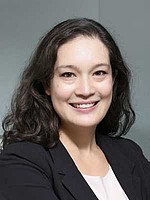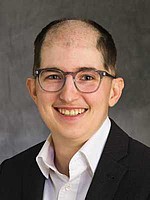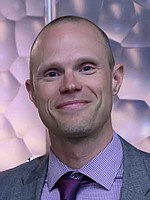Network Defects and Defect Engineering
Session Chairs
Arash Nikoubashman (Leibniz-Institute of Polymer Research, Dresden, Germany)
Sebastian Seiffert (Johannes Gutenberg Universität, Mainz, Germany)
Invited Speakers

Julia Kalow (Northwestern U., USA)
Upcycling with dynamic bonds (Shared talk with Vitrimers, Sustainable Materials & Recycling)
The Kalow Lab seeks to bridge the molecular-level understanding of exchange chemistries and the macroscopic observation of flow and healing by combining physical organic studies and mechanical characterization. We have developed a tunable catalyst-free associative exchange reaction based on conjugate addition–elimination of thiols. In this talk, I will discuss strategies to upcycle polymer waste through incorporation of these dynamic bonds.

Alexa S. Kuenstler (Univ. Illinois, USA)
Resolving the Effects of Chemistry and Polymer Network Structure on the Viscoelasticity of Dynamic Covalent Networks (shared talk with Vitrimers, Sustainable Materials & Recycling)
The viscoelasticity of dynamic covalent networks arises from the interplay between bond exchange kinetics and polymer chain dynamics. In this talk, we will consider how these features can be independently tuned through synthetic approaches, and discuss how rheological measurements combined with coarse-grain models can reveal the distinct contributions of each to emergent behavior.

Bradley D. Olsen (MIT, USA)
The application of net formalisms to characterize polymer networks
This talk will describe the mathematics of nets and its utility in comparing different network formalisms. The dependence of network properties on different net topologies will be explored.

Marcus Weck (New York University, USA)
Functionalized Supramolecular Polymers: Self-Assembly, Folding, and Network Formation
Bottom-up strategies to fabricate functional materials rely extensively on noncovalent chemistry. We will present a polymer approach towards well-defined structures reminiscent of Nature — in a sequence specific and monodisperse manner. In particular, the presentation will focus on folding approaches towards artificial proteins based on controlled polymerization methods of structurally simple, yet complex monomers to engineer homo- or heterotelechelic secondary structure-containing polymers. A second self-assembly strategy towards highly cross-linked polymeric networks will be presented using random, alternating, or block copolymers possessing recognition moieties that self-assemble with their complementary receptor molecules with very high association strengths.
Contributed talks and posters
... will be continuously added until the abstract acceptance deadline.